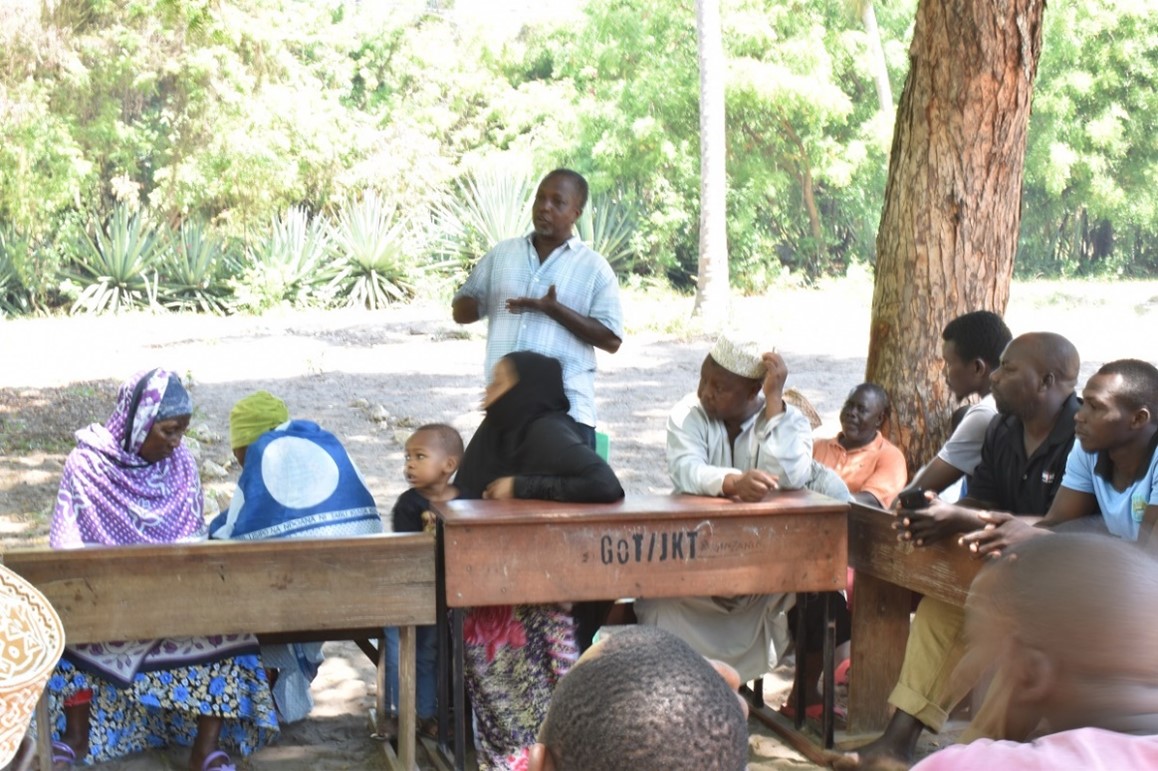
Think beyond weather forecasts:
Enhance Climate Resilience by innovative climate services
To make climate smart decisions it needs more than just weather forecasts. Providing and building the neccasary capatiy for smallholders to make adaptation decision is a the core of effective climate services. We show new ways how to approach climate services by innovative farmer and demonstration farms.
Local, reliable, timely and user-friendly climate serivces
are etabshling as key factor for succesfull adapation of smallholders to
variability and climate change. To tailor and disseminate useable, relevant,
and trusted weather information, which is being used by smallholders for
decision-making, a trustful and functioning relationship and communication
structure between all stakeholders is essential.
Trust me ! Communicating uncertanties of climate information
Forecasts and weather information have uncertanties, limits and are based
on probabilities and are not yet sufficently downscaled. Therefore the local
weather observed by Climate Service (CS ) users can varry from the disseminated
climate information. If not explained and adressed this can raise distrust,
frustration and baised discussions from the CS users.
Time to shine: Sharing the best-practice of innovative farmers
The initial approach to enhance climate services for decision making engaged Government employed extension officers to register end users. Extension officers and some of our network members were trained to become ToTs in their respective working areas. CAN was intending to use such registration to interact with farmers, pastoralists and fishers to understand how they use weather forecast information for decision making. However, lack of transportation means had very low achievement in attaining the goal. The decision after evaluation process in Ushongo village-Pangani District was to choose ToTs from local communities by selecting innovative farmers, pastoralists and fishers. The approach started immediately from Ushongo village by identifying local knowledge about effects of climate change.
Like a fish in the water:
Promoting participatory marine management in Ushongo
village
Global temperature rise has cause rise in temperature around shallow water. Fish which lived around shallow surface have moved to deep water to escape effects of high temperature, said Husseni Bakari.
Picture : Fish vendors describe effects of rise in water temperature
The migration from shallow water to deep water
affected women as well. Fishing on foot was one of the famous economic activity
in Ushongo village. They have lost this opportunity due to climate change due
to fore mentioned fish migration phenomenon.
‘Women are no longer going around shallow water on foot for fishing like before. Climate change has affected our economic activity and lifestyle’, said Jamila Kombo
The effect of climate change has not affected activities taking place in ocean only, it has affected mainland activities as well. ‘During bad weather conditions like high tides, winds and storms and heavy rainfall, our community was shifting to farming to grow field crops for home consumption. Climate change affected the season behavior. We have no opportunity to grow field crops as we used to do because rain season is no longer predictable’, said Akida, the elder of Ushongo village
Make hay when the sun shines: :
The evaluation conducted in Ushongo village
alerted for producers and dissemination agents to establish ‘driving topic of
interest’ in communities. Demonstration plots for fishing, pastoralism or
farming connect climate services producers and end users because they are
affected by weather changes. CAN is therefore proceeding with selecting
innovative farmers and pastoralists to promote to ToTs so that large
communities can learn practically from neighbors. Such ToTs and demo plots are
expected to raise question from communities to agricultural experts from CAN,
network members and Government extension officers. Good interpretation, quick
response to questions and achievement through demo farms are expected to raise
awareness towards satisfaction of climate services end users and raise
community adaptation and resilience.
The fishers community in Ushongo village has
started adaptation means by closing of octopus breeding rocks for three months
to allow increase in number of fish and conserving environment through Beach
Management Unit (BMU). CAN-TZ is sponsoring this adaptation approach to strengthen
resilience.
